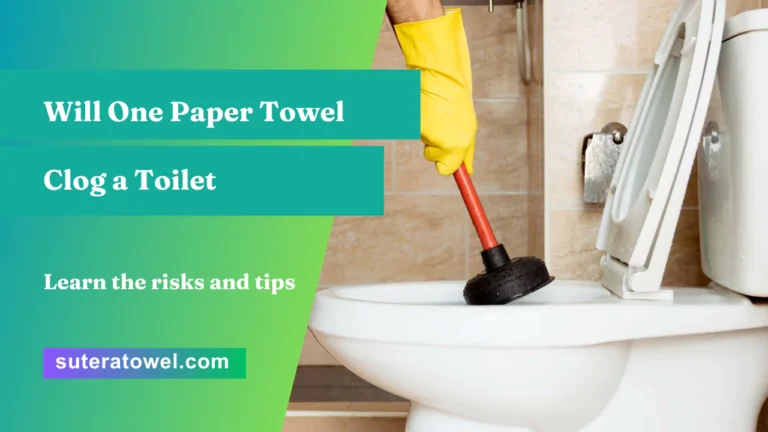One paper towel can clog a toilet due to its inability to break down easily in water. In most cases, using a single paper towel is unlikely to clog a toilet.
However, it’s important to note that paper towels are designed to be more durable and absorbent than regular toilet paper, making them less likely to break down quickly when flushed. Over time, multiple paper towels flushed down the toilet can accumulate and clog the plumbing system.
Therefore, it’s best to dispose of paper towels in a trash bin rather than flushing them down the toilet to prevent potential clogging issues. Taking this precaution will ensure a properly functioning plumbing system and help avoid costly repairs.
- 1 Factors To Consider When Choosing A Toilet-Friendly Paper Towel
- 2 Understanding The Mechanics Of Toilet Drainage
- 3 The Impact Of One Paper Towel On Toilet Drainage
- 4 The Journey Of A Paper Towel In The Plumbing System
- 5 Environmental Impact Of Toilet Paper Towel Clogs
- 6 Tips For Disposing Of Paper Towels Responsibly
- 7 The Role Of Regular Plumbing Maintenance In Preventing Clogs
- 8 Frequently Asked Questions Of Will One Paper Towel Clog A Toilet
- 9 Conclusion
Factors To Consider When Choosing A Toilet-Friendly Paper Towel
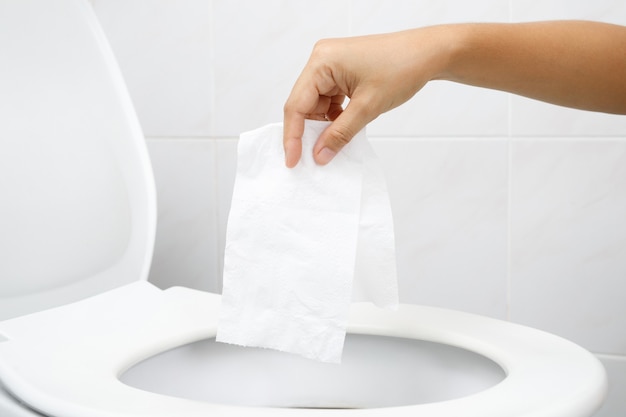
Choosing a toilet-friendly paper towel involves considering factors like thickness, absorbency, and material. Opt for a towel that won’t easily clog your toilet to avoid any potential plumbing issues in the future.
Softness and Biodegradability:
- Softness is a crucial factor to consider when selecting a toilet-friendly paper towel. The softer the towel, the less likely it is to cause any irritation or discomfort.
- Biodegradability is another essential aspect to keep in mind. Opting for paper towels made from biodegradable materials helps reduce environmental impact and ensures they break down easily in the toilet.
Absorbency and Strength:
- Absorbency is a key attribute to look for in a toilet-friendly paper towel. A towel with high absorbency will effectively soak up water and other liquids without falling apart.
- The strength of the paper towel is equally significant. A strong towel will not disintegrate upon contact with water, reducing the risk of clogging the toilet.
Lint-Free and Non-Scratch Properties:
- Choosing a lint-free paper towel is advisable to prevent any residue or fibers from accumulating in the toilet pipes, potentially leading to a clog.
- Opt for a towel that has non-scratch properties to avoid any damage to the toilet bowl or delicate surfaces.
To ensure a hassle-free toilet experience, it is essential to consider these factors when selecting a paper towel. By choosing a soft, biodegradable, absorbent, and strong towel, you can minimize the chances of toilet clogs and promote environmental sustainability at the same time.
Additionally, opting for lint-free and non-scratch properties ensures the long-term health and functionality of your toilet system. Remember, making an informed choice can go a long way in avoiding unnecessary plumbing mishaps.
Understanding The Mechanics Of Toilet Drainage
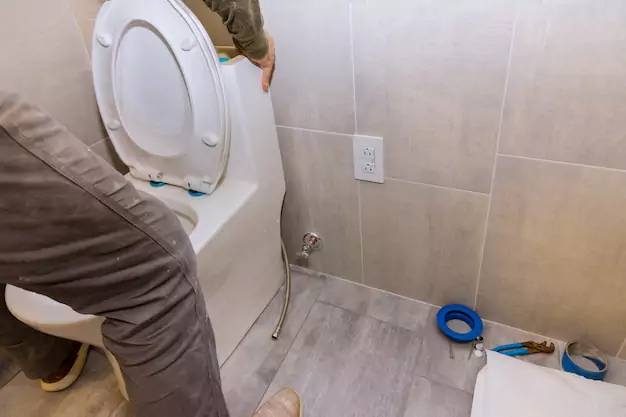
In understanding the mechanics of toilet drainage, it’s important to consider whether one paper towel will clog a toilet. By delving into the topic, we can gain insights into the potential risks and implications of disposing paper towels down the toilet.
Stay informed to prevent potential plumbing issues.
Toilet drainage may seem like a simple process, but several factors at play determine its efficiency. By understanding the mechanics of toilet drainage, we can gain insights into what may cause a toilet to clog and how to avoid it.
In this section, we will explore two crucial elements that affect toilet drainage: flow and pipe diameter, as well as water pressure and gravity. Additionally, we will discuss the dissolvability of toilet paper.
Flow And Pipe Diameter:
- Flow and pipe diameter are significant factors that impact toilet drainage.
- The flow refers to the amount of water that is discharged from the toilet during a flush.
- A larger pipe diameter allows for a faster flow of water, while a smaller diameter can restrict the flow.
- A narrow pipe diameter can increase the likelihood of toilet clogs, as it may not accommodate a large volume of water and waste.
- The ideal pipe diameter for optimum flow and minimal clogging is typically around 3 to 4 inches.
Water Pressure And Gravity:
- Another crucial aspect that affects toilet drainage is the combination of water pressure and gravity.
- Water pressure plays a vital role in propelling the waste through the drain pipes.
- Sufficient water pressure ensures a swift and effective flush, preventing clogs.
- Without adequate pressure, waste may get trapped in the pipes, leading to blockages.
- Gravity aids the flow of water and waste, allowing it to move freely down the drain.
- Water pressure and gravity work together to create a seamless drainage process.
Toilet Paper Dissolvability:
- The dissolvability of toilet paper is an essential consideration to prevent clogs.
- Not all toilet papers are created equal when it comes to dissolving in water.
- Some toilet paper brands are specifically designed to break down quickly upon contact with water, minimizing the risk of clogs.
- These brands typically advertise themselves as “septic-safe” or “quick-dissolving” toilet paper.
- Choosing toilet paper with excellent dissolvability can greatly reduce the chances of dealing with a clogged toilet.
Understanding the mechanics of toilet drainage is crucial for maintaining a well-functioning toilet and avoiding clogs. The flow and pipe diameter, water pressure, and gravity all play important roles in facilitating effective toilet drainage. Additionally, selecting toilet paper with good dissolvability can further prevent clogging issues.
By considering these factors, you can ensure a smoother and trouble-free flushing experience.
The Impact Of One Paper Towel On Toilet Drainage

Curious whether one paper towel can cause a toilet to clog? Discover the surprising impact of a single paper towel on toilet drainage and how it can lead to plumbing problems if not disposed of properly. Understand the importance of proper waste management to avoid potential toilet blockages.
When it comes to toilet drainage, even a seemingly harmless item like a paper towel can cause blockages. Understanding the impact of one paper towel on toilet drainage is crucial for avoiding clogs and keeping your plumbing system in good working order.
In this section, we will explore the potential blockage causes, risk factors for clogs, and steps to prevent toilet paper towel clogs.
Potential Blockage Causes:
- Excessive Absorption: Paper towels are designed to absorb liquids, making them prone to expanding and becoming heavy when wet. This can lead to difficulties in moving through the plumbing system.
- Thick and Non-Biodegradable: Compared to regular toilet paper, paper towels are often thicker and less biodegradable. Their durability can make it challenging for them to break down properly, increasing the risk of clogs.
Risk Factors For Clogs:
- Insufficient Water Flow: Inadequate water flow during the flushing process can impede the paper towel’s movement through the pipes, increasing the likelihood of a blockage.
- Older Plumbing Systems: Aging plumbing systems may have narrower pipes or reduced water pressure, making them more susceptible to clogs caused by paper towels.
Steps To Prevent Toilet Paper Towel Clogs:
- Dispose of Paper Towels Properly: Paper towels should always be thrown in the garbage bin and not flushed down the toilet. Remind your household members or visitors to follow this rule to minimize the risk of clogs.
- Educate Children: Teach children about the importance of only flushing toilet paper and not other items like paper towels. Providing clear instructions can help prevent accidental clogs.
- Opt for Environmentally-Friendly Alternatives: Consider using eco-friendly toilet paper options that are specifically designed to break down easily, reducing the chance of clogs caused by paper towels.
- Regular Maintenance: Schedule routine plumbing inspections and maintenance to identify any potential issues before they become major problems. This proactive approach can help prevent clogs and ensure proper toilet drainage.
By understanding the potential blockage causes, recognizing the risk factors, and implementing preventive measures, you can keep your toilet running smoothly. Remember, even a single paper towel can have a significant impact on your plumbing system, so make sure to dispose of it properly and educate others on the importance of doing the same.
The Journey Of A Paper Towel In The Plumbing System
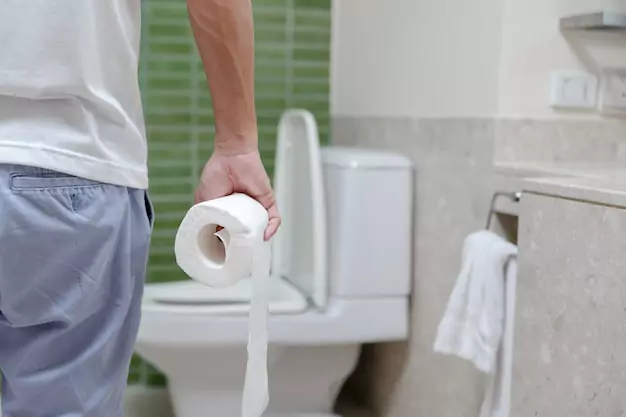
A single paper towel has the potential to clog a toilet, causing a plumbing nightmare. It is important to properly dispose of paper towels to avoid costly repairs and inconveniences.
Have you ever wondered what happens to a paper towel when you flush it down the toilet? It may seem like a small and harmless action, but the journey of a paper towel in the plumbing system can have some serious consequences.
In this section, we will explore the path from the toilet bowl to the sewer line, as well as the potential for system backup and pipe damage due to suboptimal drainage.
Path From Toilet Bowl To Sewer Line:
- Paper towel is flushed down the toilet.
- It enters the drain pipe connected to the toilet bowl.
- The water from the flush carries the paper towel along the pipe.
- The paper towel moves through a series of bends, twists, and turns in the plumbing system.
- If the paper towel gets stuck or slows down in any of these areas, it can cause drainage issues.
Consequences Of Suboptimal Drainage:
- Suboptimal drainage occurs when the paper towel impedes the flow of water.
- This can lead to multiple issues within the plumbing system.
- Slow drainage can cause other waste, such as toilet paper and solid waste, to accumulate behind the paper towel.
- Over time, this can create blockages, leading to backup and clogs in the toilet.
- Additionally, suboptimal drainage can put pressure on the pipes, potentially leading to pipe damage.
Potential For System Backup And Pipe Damage:
- Blockages caused by paper towels can result in a system backup.
- A backup is when water and waste cannot flow through the drain pipe as intended.
- This can cause toilets to overflow or water to back up into sinks or bathtubs.
- Furthermore, the pressure from the backup can put a strain on the pipes, leading to cracks or even burst pipes.
- Pipe damage can result in costly repairs and possibly even the need to replace sections of the plumbing system.
Remember, even though paper towels may seem harmless when flushed down the toilet, they can cause significant issues within the plumbing system. Proper disposal in a trash can is always the best practice to avoid potential damage and costly repairs.
Environmental Impact Of Toilet Paper Towel Clogs
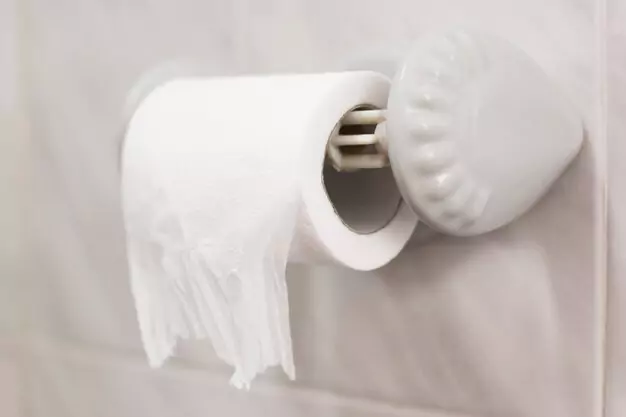
Toilet clogs caused by paper towels have a significant environmental impact. One paper towel may seem harmless, but it can lead to plumbing issues and contribute to overflowing sewage systems, impacting the environment negatively. It is essential to dispose of paper towels properly to avoid these problems.
Toilet paper towels clogging toilets not only create inconvenience for individuals but also have a significant environmental impact. Understanding the consequences of toilet paper towel clogs can encourage us to seek eco-friendly alternatives and reduce water and energy waste, as well as pollution risks.
Water And Energy Waste:
- Flushing a clogged toilet repeatedly to clear toilet paper towels consumes excessive amounts of water, leading to wastage.
- The repeated flushing also results in increased energy usage, as more water needs to be heated.
- To clear severe clogs, professional intervention may be necessary, further increasing water and energy consumption.
Pollution Risks:
- The accumulation of toilet paper towels in the toilet pipe can cause sewage backups, leading to the release of harmful contaminants into the environment.
- Backed-up sewage can contaminate water bodies, polluting our natural ecosystems and posing health risks to aquatic life.
- Increased wastewater treatment may be required to address the issues caused by toilet paper towel clogs, potentially introducing additional pollutants into the environment.
Eco-Friendly Alternatives:
- Consider using toilet paper specifically designed for quick breakdown when contacting water, reducing the likelihood of clogs.
- Bidets and washlets are effective alternatives that minimize or eliminate the use of toilet paper.
- Reusable cloth wipes, which can be washed and used again, are an environmentally friendly alternative to single-use paper towels.
By understanding the environmental impact of toilet paper towel clogs, we can make informed choices to minimize water and energy waste, mitigate pollution risks, and adopt eco-friendly alternatives that are both sustainable and effective. Let’s prioritize the health of our planet while ensuring the smooth operation of our toilets.
Tips For Disposing Of Paper Towels Responsibly
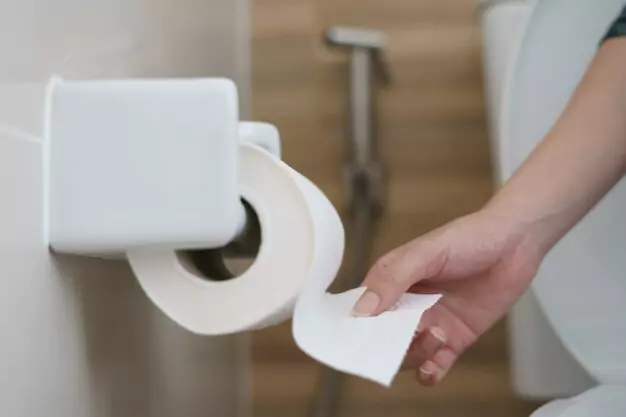
Wondering if one paper towel can clog your toilet? Follow these tips for disposing of paper towels responsibly to avoid any plumbing issues.
Did you know that one paper towel can cause a whole lot of trouble in your toilet? That’s right, flushing paper towels down the toilet can lead to clogs and plumbing issues. So, how can you dispose of paper towels responsibly?
Here are some tips to help you out:
Using Trash Bins And Compostable Bags:
- Throw paper towels in the trash bin: The easiest and most common way to dispose of paper towels is by throwing them in the trash. Make sure they are completely dry before tossing them to prevent any mold or odor issues.
- Consider using compostable bags: If you’re environmentally conscious, using compostable bags can be an excellent option. Place the paper towels in these bags and dispose of them in the trash bin or compost heap. These bags will decompose over time, reducing the environmental impact.
Recycling Options:
- Contact your local recycling center: Check with your local recycling center to see if they accept paper towels for recycling. Some centers have special facilities that can process paper towels.
- Separate clean and dry paper towels: If your recycling center accepts paper towels, make sure to separate them from other waste. Ensure they are clean and dry before recycling.
Safe Solutions For Large Paper Towel Accumulation:
- Donate to animal shelters or cleaning services: If you find yourself with a large accumulation of paper towels, consider donating them to local animal shelters or cleaning services. These organizations often require these items.
- Use as a fire starter: If you have a fireplace or enjoy camping, paper towels can be a useful fire starter. Roll them up and use them to ignite a fire quickly and easily.
Remember, flushing paper towels down the toilet can lead to costly plumbing issues. By following these tips, you can dispose of paper towels responsibly, reducing your environmental impact and avoiding potential plumbing disasters. So, the next time you use a paper towel, think twice before flushing it down the toilet!
The Role Of Regular Plumbing Maintenance In Preventing Clogs

Regular plumbing maintenance plays a crucial role in preventing clogs, including those caused by paper towels. By addressing potential issues early on, you can avoid costly repairs and maintain the efficiency of your toilet.
It’s a common scenario that many of us have experienced – a clogged toilet. Whether it’s due to excessive toilet paper use or the flushing of inappropriate items, a clogged toilet can be a major inconvenience. In this blog post, we’ll delve into the topic of whether one paper towel can clog a toilet and explore the importance of regular plumbing maintenance in preventing clogs.
Let’s dive in!
Importance Of Professional Inspections:
- Regular plumbing inspections are essential for maintaining the health of your plumbing system and preventing clogs.
- Professional plumbers have the experience and expertise to identify potential issues before they become major problems.
- Through inspections, plumbers can detect early signs of clogs or blockages and address them promptly.
- By investing in routine inspections, you can save yourself from costly repairs and inconveniences down the line.
Common Signs Of Plumbing Issues:
- Slow draining: If you notice that your toilet is taking longer than usual to drain, it could be a sign of a clog.
- Gurgling sounds: Unusual gurgling or bubbling sounds coming from your toilet may indicate a blockage in the plumbing system.
- Foul odors: Persistent unpleasant smells emanating from your toilet could suggest a clog or sewer backup.
- Water backups: The water level in your toilet rising after flushing or water backing up into other drains are clear indications of a clog.
Diy Vs. Professional Solutions:
- While it might be tempting to try and tackle a clog on your own, it’s important to understand the limitations of DIY methods.
- DIY solutions such as using a plunger or a plumbing snake can be effective for minor clogs, but they may not address the underlying cause.
- Professional plumbers have specialized tools and equipment to effectively remove clogs and unclog your toilet.
- They can also guide you on preventing future clogs and offer expert advice on maintaining your plumbing system.
Regular plumbing maintenance plays a crucial role in preventing clogs and ensuring the smooth operation of your toilet. Investing in professional inspections, being aware of common signs of plumbing issues, and understanding the benefits of professional solutions are key steps in maintaining a healthy plumbing system.
So, the next time you find yourself wondering if one paper towel can clog a toilet, remember the importance of regular plumbing maintenance. Stay proactive in caring for your plumbing system to avoid unwanted clogs and headaches down the line.
Frequently Asked Questions Of Will One Paper Towel Clog A Toilet
Can I Flush One Paper Towel?
No, you should not flush one paper towel as it can cause clogs and damage to the plumbing system.
How Long Does It Take For Paper Towel To Break Down In Toilet?
Paper towels typically take about 1-2 weeks to break down in the toilet.
Will Paper Towel Dissolve In Clogged Toilet?
The paper towel does not dissolve easily in a clogged toilet due to its strong fiber structure.
How Do You Dissolve A Paper Towel In A Toilet Drain?
To dissolve a paper towel in a toilet drain, use a toilet plunger or a plumbing snake to break it down.
Conclusion
So, what’s the verdict? Can one paper towel clog a toilet? Based on the research and information provided in this blog post, it is clear that using a single paper towel should not cause any major issues or clog a properly functioning toilet.
However, it’s important to remember that toilets are designed to handle specific waste, and flushing excessive amounts of paper towels or any other non-flushable items can lead to plumbing problems over time. It’s always best to follow the recommended usage guidelines for your toilet and dispose of paper towels in the trash bin, especially if they are soaked or dirty.
By being mindful of what you flush down the toilet, you can help prevent unnecessary plumbing headaches and keep your bathroom running smoothly. Remember, a little caution goes a long way in maintaining a well-functioning toilet and protecting your plumbing system.
